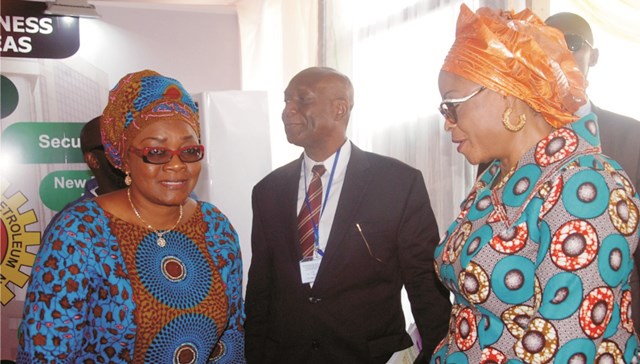Business
Sign Minimum Wage Bill Into Law Before May 1, NLC Tells Buhari

The Nigeria Labour Congress (NLC), yesterday, appealed to President Muhammadu Buhari to assent to the new National Minimum Wage Bill for the Nigerian workers recently passed into law by both chambers of the National Assembly before the 2019 Workers’ Day celebration.
Speaking in an interview with newsmen in Abuja, General Secretary of NLC, Dr. Peter Ozo-Eson said with the passage of the bill into law, the President should immediately sign it into law in other to give effect to his promise to ensure the welfare of the Nigerian workers.
It was recently rumoured that the President has signed the bill into law giving workers hope that they may start enjoying the new minimum wage before the May Day celebration, but it turned out to be a false alarm.
Both Chambers of the National Assembly passed N30,000 as the new national minimum, increasing the government recommendation of N27,000, but Ozo-Eson said the delay by Mr President over the wage for workers in the country has become very worrisome.
He said, “We are concerned that it has taken this long, since the transmission from the National Assembly to the Presidency of the bill that both house and the Senate passed.
“We have thought that given all processes before arriving at that point. The long delay in setting up a tripartite committee, the long period before the tripartite committee to now finalize and all the debates that have gone on
“We thought that this was something Mr President will assent to very quickly, because as we have earlier indicated, we will want this implementation to take effect before May. That is by May Day, workers can be assured of the direction of implementation.
“Our position is to call on Mr. President to, without further delay, to assent to the New National Minimum Wage Bill, so, that workers can start to enjoy the new minimum wage implementation before May Day.
He emphasized that apart from the public sector, workers in the private sector were also waiting for the law to be implemented in order to make its own full negotiations and plans, while insisting that in implementing the new national minimum wage would also allow the economy to be operated in an environment of certainty.
Business
Nigeria’s ETF correction deepens as STANBICETF30, VETGRIF30 see 50% decline in a week

Business
BOI Introduces Business Clinic

Business
Dangote signs $400 mln equipment deal with China’s XCMG to speed up refinery expansion

-
Maritime4 days ago
Nigeria To Pilot Regional Fishing Vessels Register In Gulf Of Guinea —Oyetola
-

 Sports4 days ago
Sports4 days agoGombe-Gara Rejects Chelle $130,000 monthly salary
-
Maritime4 days ago
Customs Declares War Against Narcotics Baron At Idiroko Border
-

 Sports4 days ago
Sports4 days agoTEAM RIVERS SET TO WIN 4×400 ” MORROW” …Wins Triple jump Silver
-
Maritime4 days ago
NIMASA,NAF Boost Unmanned Aerial Surveillance For Maritime Security
-

 Sports4 days ago
Sports4 days agoNPFL Drops To 91st In Global League Rankings
-

 Sports4 days ago
Sports4 days agoNIGER DELTA GAMES PANACEA TO YOUTH DEV”
-

 Sports4 days ago
Sports4 days agoNPFL Impose Fines On Kwara United Over Fans Misconduct

